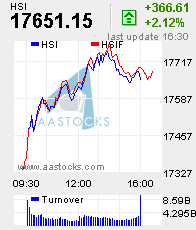Geographically, the Diao Yu Islands lie 410 kilometres from Japan's Okinawa Islands, but only about 300 kilometres from the Chinese mainland and less than 100 kilometres northeast from the Taiwan.
Diao Yu Islands are "rich" in terms of their adjacent waters with plenty of marine resources and mineral oil patches underwater. There are plenty of resources to be potentially exploited around there.
Property rights are the rules that govern the right of uses and its terms of ownership transfers of a resource. The sovereignty (ownership) of Diaoyu Islands belongs to China. The Japanese Government has no right to occupy the Islands. It is illegal. However, the cost of enforcing the property right of Diaoyu Islands is pretty high, and such cost constitutes one of the transaction costs. The transaction costs may be prohibitively huge.
In economics, we have the Coase Theorem which states that regardless of the initial assignment of property rights, the equilibrium is identical and efficient through the market operation ---- provided that property rights are well-defined and transaction costs are negligible. According to such theorem, the assignments of rights does not affect the efficient allocation of resources
BUT affect wealth distribution. Whoever has the right will gain and whoever has to buy the right may lose. Which party bears the loss is reciprocal depending on the assignment of rights.
If the property rights are not well-defined, non-price competition will be likely the result and leading to dissaption of rent. That is the scrambling competition will go on until the marginal cost of the scrambling equals to the potential marginal benefit obtained from getting such resources. Dissaption of rent implies wastage of resources. Therefore, it is not always a efficient practice of "non-price competition" ---- through violence or other measures.
There is a huge amount of evidences indicating that Diao Yu Islands in the East China Sea have long been Chinese territories. It is a fact the Islands constituted an entity with China's other territories. According to the United Nations Convention of the Law of the Sea, the geographical scope of a country includes the islands, waters, and other natural stretches of lands (terrains) that constitute a geographical, economic and political entity. Therefore, I think it is inevitable for our Chinese Government to pay such cost of enforcing our solemn sovereignty of Chinese territories.
Regrettably, the Japanese Government shows her greediness by use the name "Senkaku Islands(尖閣列島)" instead of Diao Yu Islands. They never recognize China has sovereignty over these uninhabited isles and even turned a blind eye to the Japanese right-wingers' visit to the islands.
What a shame to Japan! Japan should finally pay the price for her aggressive behaviour!
Copyright Reserved by tcwong©Reference Link:
http://news.bbc.co.uk/hi/chinese/news/newsid_3565000/35650232.stm










